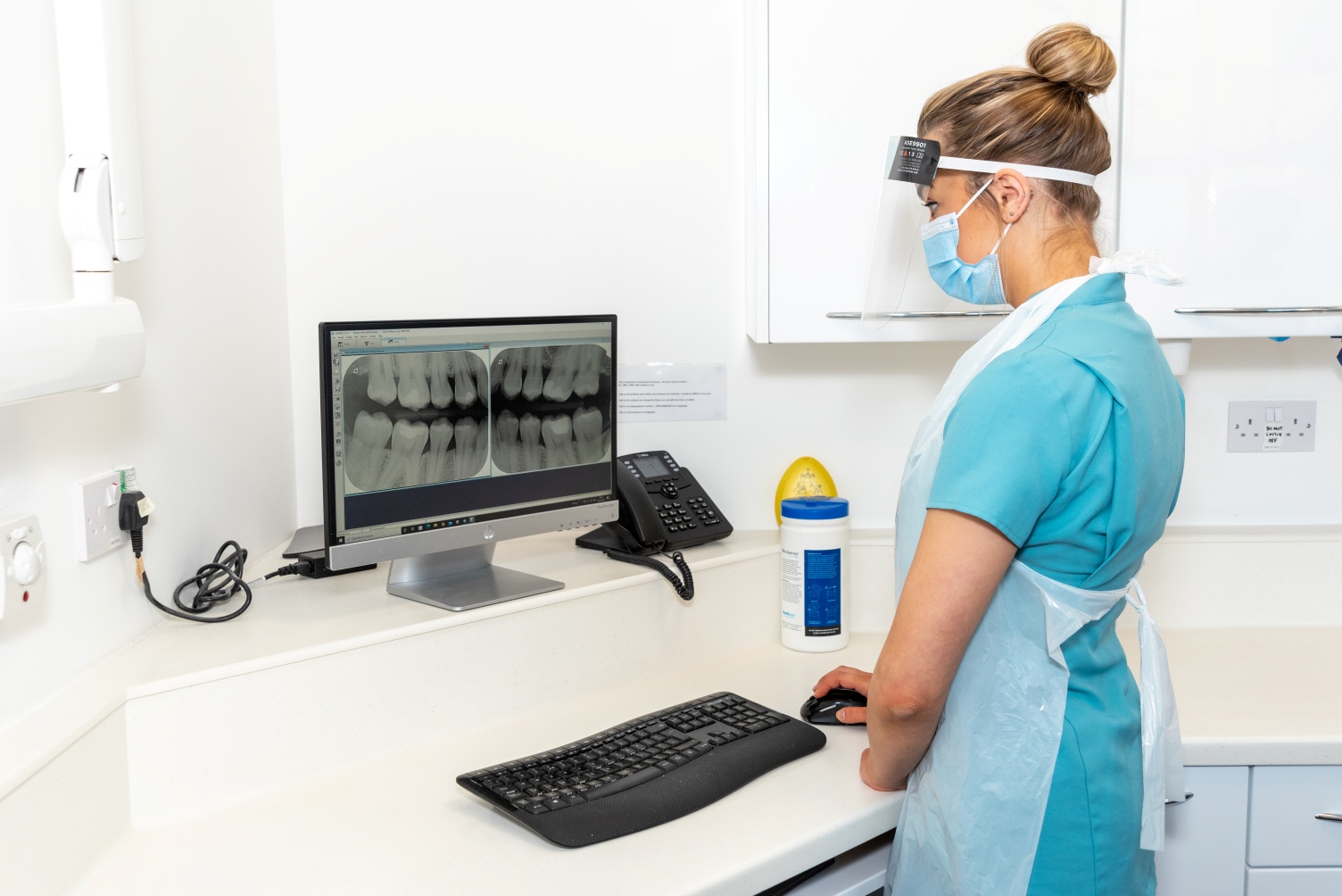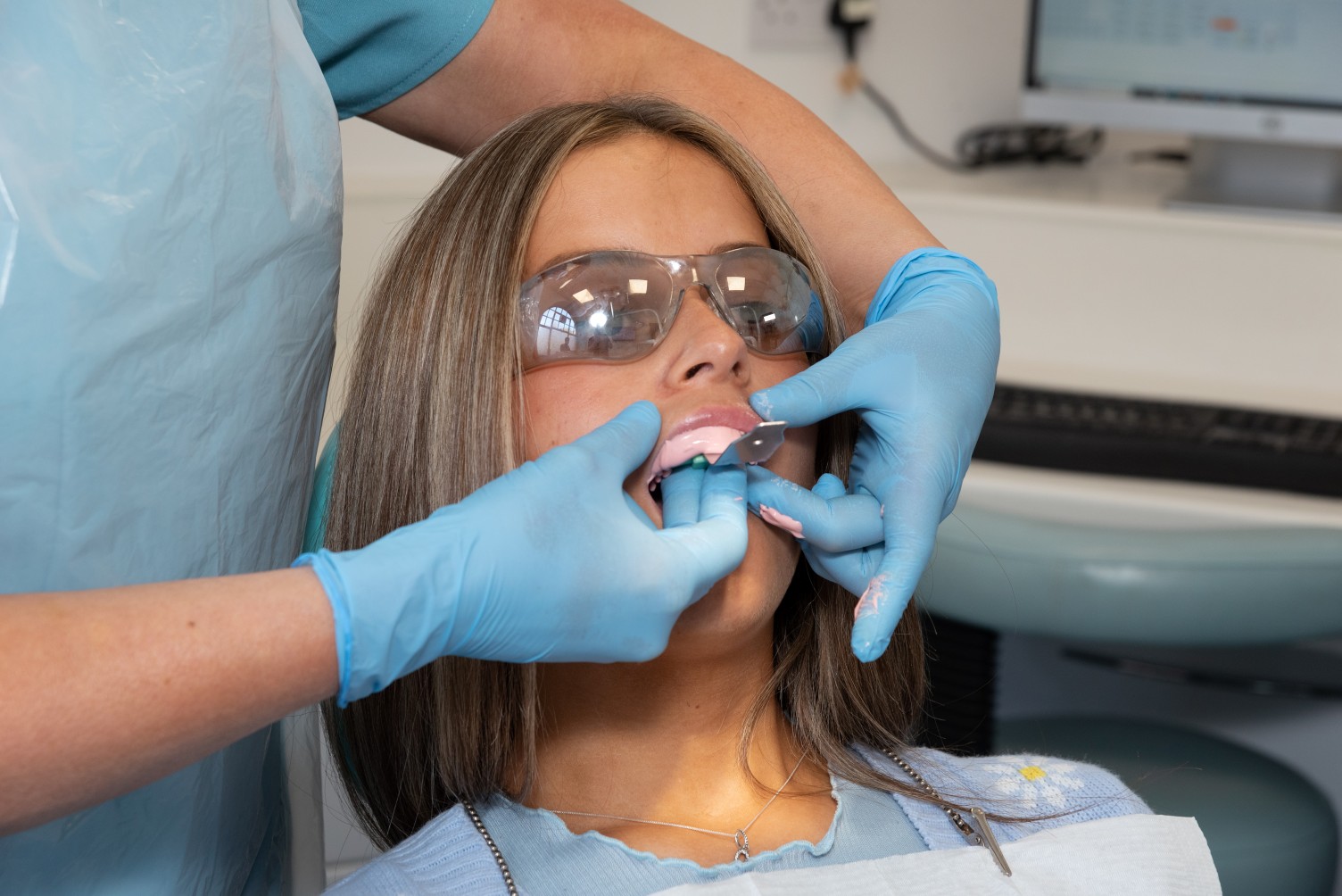Previous
Dental technician
To become a dental therapist, you'll need to complete a pre-registration training programme and register with the General Dental Council (GDC). Discover the essential steps and key considerations for starting this rewarding career.
At NHS Scotland, your salary doesn’t stand still. We reward you for the skills you bring and increase your pay as you gain experience. Find out more about pay and benefits.
Qualified dental therapists in the NHS start at £33,247 before tax.
Specialist dental therapists can earn up to £50,702, and advanced dental therapists can earn up to £59,159 before tax.
A dental therapist plays a crucial and expanding role within the dental team. Dental therapists are qualified to diagnose dental diseases and provide a wide range of dental treatments within their scope of practice. This can involve providing direct care to patients or treating them under prescription from a dentist.
A dental therapist's scope of practice allows them to provide essential preventative advice and treatments to combat gum disease and tooth decay. They also provide restorative treatments like fillings on both adults' and children's teeth. Dental therapists can also carry out extractions and place crowns on children's primary teeth.
Dental therapists may work in a general dental practice, community health centre, or a hospital setting.

To prepare for a dental therapist career, useful subjects to study at school include:
Speak to your guidance teacher or careers adviser about the subjects offered at your school.

You may find it helpful to get some healthcare experience by doing a work placement or volunteering. You’ll get training, increase your knowledge, and learn new skills. This could help you when applying to university, college or a new job with NHSScotland.
The route to becoming a dental therapist begins with a solid educational foundation. Whether you are a school leaver or a mature student, there are several pathways you can take to gain the qualifications and skills you need.
Some training providers accept applications from candidates who have successfully completed a SWAP access course. The SWAP website has more information about these courses for mature students.
To practice safely and effectively in the UK, all dental professionals, including dental therapists, must demonstrate the necessary knowledge of English. The GDC standards state that dental professionals must "be sufficiently fluent in written and spoken English to communicate effectively with patients, their relatives, the dental team, and other healthcare professionals in the United Kingdom." Effective communication includes speaking, reading, writing, and listening.
The General Dental Council (GDC) requires all dental therapists to complete a recognised training programme that leads to GDC registration. A BSc degree in Oral Health Sciences is a common pathway to becoming a dental therapist.
Currently, this degree is offered by the following training providers in Scotland:
These training providers can advise on their specific programme entry requirements, which can vary. Applications for these undergraduate degree programmes are typically made through UCAS.

As a dental therapist, you'll work within a team. This is an exciting role with an increasing focus on preventing disease and promoting healthy lifestyles.
Your daily tasks may include:
For more information download the official GDC scope of practice guide [PDF].
You'll need these skills:
Dental therapists work with other dental care professionals, including:
You could work as a dental therapist in a variety of different settings:
Dental therapists can also have their own dental practice.
As a dental therapist, you are expected to undertake ongoing continuing professional development (CPD). The purpose of CPD is to maintain and update your skills, knowledge, and competence so that you can retain your registration with the GDC.
You can learn more about CPD requirements for dental professionals on the GDC website.
With experience and additional training, you can significantly advance your dental therapist career. You can extend your professional scope to include tasks such as:
With further experience and qualifications, you can also pivot into a new career path or registrant group. For example, a dental therapist could move into management roles or become a dental therapist tutor, training the next generation of oral healthcare professionals.
Upon becoming a qualified dental therapist, you must register with the General Dental Council (GDC).
You can also join professional organisations such as:
These organisations provide excellent resources, support, and professional representation for dental therapists.

Our blog includes how-to guides, case studies, and resources to help you find your perfect career.
Discover more
We'll guide you through the recruitment process, from applying online to interview preparation.
Learn more